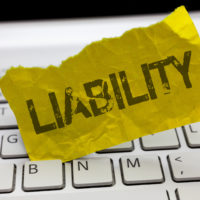The “Attractive Nuisance” Doctrine In Florida

Children always have a way of getting into places where they may not necessarily belong, given their natural curiosity. However, this can be dangerous, especially with children who are too young to accurately appreciate the danger. If your child has been injured due to the presence of a so-called ‘attractive nuisance,’ you may be able to sue for compensation on their behalf, depending on the specific facts of the situation.
What Is An “Attractive Nuisance?”
When adults trespass on someone else’s land or someone else’s premises, they are presumed to know that is against the law, and will generally be punished accordingly. However, children lack that capacity to understand, and they are also more susceptible to impulses, especially when something interesting catches their attention. Because of this, child trespassers are given more legal leeway than adults. An attractive nuisance is defined as that ‘something interesting,’ if it is on someone else’s property – things like refrigerators, clothes washers, and any other discarded air-tight unit are specifically listed as attractive nuisances under Florida law, though these examples hardly constitute an exhaustive list.
Something larger may also be considered an attractive nuisance in a certain situation, such as a swimming pool, construction site or trampoline. In some cases, even tools left lying in the open have been ruled to be an attractive nuisance to a child trespasser. Anything that might conceivably attract a child trespasser has the likelihood of being labeled an attractive nuisance, but if your property is, say, extremely rural, there is less of a risk of that label simply because trespassers would be so much less likely in general.
Who Is Liable?
The general test to determine whether a property owner might be liable under the attractive nuisance doctrine is fairly straightforward. The property owner had to know (or have had reason to know) that there was a condition or entity on their land that had the potential to cause serious harm to children who might come across it, and that dangerous condition was located in a place where it was plausible children might encounter it. The property owner must also have taken reasonable precautions to neuter the danger from this attractive nuisance. If these all apply, and the cost to the property owner in fixing the condition was not greater than the benefit of saving lives, it is very likely that the property owner will be held liable for any injuries a child trespasser might suffer.
Notwithstanding these criteria, it is important to remember that the mere fact of injury to a child trespasser does not mean an automatic victory for the plaintiff. The court will evaluate several different factors regarding a child plaintiff, including their ability to understand and appreciate the danger, as well as the issue of what attracted them onto the land in the first place. If a child is deemed to have been old enough to understand the potential danger of playing in a dangerous place, or investigating something they should not investigate, the court will almost always rule against them, because in order to hold the property owner liable, an injured child trespasser must not have been able to see the danger.
Call A Tampa Premises Liability Lawyer
No parent wants to see their child injured, but if they have been injured while trespassing on someone else’s property, the matter of seeking compensation can get very subjective and complex. The Tampa premises liability lawyers at the Rinaldo Law Group will work with you and your family toward what we hope is the fairest and most appropriate outcome. Contact our offices today at 813-831-9999 for a free consultation.
Resource:
flsenate.gov/Laws/Statutes/2012/823.08
https://www.tampainjuryaccidentlaw.com/premises-liability-in-private-homes/
